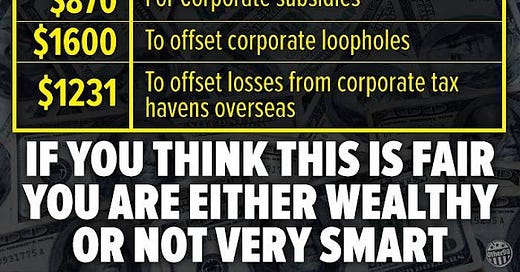How It Used to Work
When our government was a LOT smaller and we had a strong sense of community, people came together at times of trouble to support struggling neighbors. Between money and time, most people were very generous. The system worked.
The reason it was so successful had a lot to do with how both parties in the situation understood their role. Those helping out had a sense of personal reward in making a difference in someone’s life. You had a connection to the problem and the solution, which is empowering. The person being helped felt gratitude for the help—they knew it wasn’t a right. Once they were able to get back on their feet, they were likely to return the favor. And most of them did get back to being hard-working members of the community. De Toqueville felt that the mutuality of generosity and gratitude by way of charity helped improve society.
As populations grew, churches began to organize relief efforts and then, other types of charitable organizations arose. You still felt a connection with your donation. You knew specifically what the challenges were and that the people you were helping were part of your community. The important fact was that it was voluntary. You chose which charity to donate to, or where to give of your time.
The Cost of Welfare
Welfare became the major source of aid with Johnson’s Great Society programs. Though churches and charities continued to do their part, people seeking help often preferred to demand welfare because, in most cases, there was no expectation that they would get gainful employment, stop abusing drugs or alcohol or get their psychiatric ailments treated. In fact, to make it less embarrassing for the poor, ATM cards replaced food stamps, so grocery store transactions looked the same for them as for everyone else.
The money is taken from the taxpayer who cannot decide which people to help or to have any involvement with their rehabilitation from needy to self-reliant. The impact on the welfare recipient is even worse. Not only is the generous, guaranteed income often more than they can earn in a job, it is pretty much guaranteed. Charity is generally limited. Gratitude and appreciation are no longer expected. The result is a that people on welfare expect it for the rest of their life and never benefit from being self-supporting members of society. This becomes a generational problem, as their children expect not to have to work. There are significant benefits to being a full-fledged adult, responsible, self-supporting and continuously learning. Welfare infantilizes people while bankrupting our nation.
Welfare should really be very limited, only allotted temporarily and come with requirements. I hear welfare recipients say they can’t work, as they have children. Many of my friends have children and they all worked. That’s simply no excuse. Welfare should also be inconvenient and yes, somewhat embarrassing. After all, adults are supposed to support themselves, unless they are so handicapped that they can’t work in any capacity. (And the number of people in that situation is not all that large).
Taxpayers faced with high tax bills and seeing visible symbols of poverty everywhere are less likely to donate money to charities and their church. They simply have less disposable income. This then removes from us the joy of helping someone less fortunate.
While it seems like we should help those who have fallen on hard times, we need to look to the past to understand how it really should work. In those days, people got a “hand up,” not just a “hand out.” Going “up” means getting off welfare and when you look at the data, that doesn’t happen often enough. In fact, the Left, wishing to make all of us dependent on the government, keeps making it easier to get welfare, incenting people to sign up.
Solutions
We need to be tougher with people, implementing workfare, not so much welfare. It should be time-limited, except in the case of severe handicap which precludes work. Instead of money, work training should be mandated. For the many single parents, have them group together with one acting as the daycare person and the others paying for the service from their work. Right now, there are literally thousands of jobs available right where I live. There is no excuse not to work.
When you start work, if welfare is higher than your job, you will get weaned off welfare by having some money paid to you to make up the difference, until your salary improves. Go back to actual food stamps which can not be used to buy frivolous items, like alcohol, candy and other high-end items. Make people have to reapply regularly until their time limit expires.
No welfare of any kind should be available to anyone but a citizen. Maybe if we make it harder to get welfare, make it impossible to stay on it for a lifetime and support work training, we can get more people working and drop the cost of this expensive budget item. Then, we can go back to community-based charity, which empowers everyone.





Really does come back to personal responsibility as it does in so many other crises we face. This is why I am so vehemently opposed to the push for a basic income. It’s a horrible and egregious idea that will surely result in more fraud and unnecessary taxpayer burden.